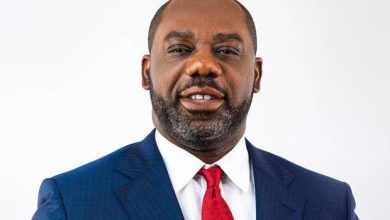MUSIGA to honour Lumba and others with Music Museum
MUSIGA to honour Lumba, others with Music Museum, Hall of Fame

The Musicians Union of Ghana (MUSIGA) has unveiled ambitious plans to immortalise the legacy of Ghanaian music legends, including Highlife icon Daddy Lumba, who died recently, with a national Music Museum and Hall of Fame.
This development comes as public concern grows over the inadequate recognition and documentation of Ghana’s music pioneers, particularly those who helped shape Highlife, a genre deeply rooted in our cultural heritage.
Speaking exclusively to Graphic Showbiz on August 5, MUSIGA President Bessa Simons revealed that MUSIGA is actively collaborating with the Ghana Museums and Monuments Board (GMMB) to establish an essential national music archive.
According to him, the proposed museum will serve as a permanent record of Ghana’s rich musical history, including various genres, landmark moments and key personalities who have defined the country’s music.
“We are embarking on documenting our artists. There is no data about them anywhere,” Simons stated, noting that “for instance, when you mention a great musician like CK Mann, there is no proper documentation on him. We will include Lumba in the list. That is the reason why we want a national music archive to honour such icons.
“In addition to the music museum where the history and contributors to Highlife will be preserved, we will make sure that all other genres done in Ghana are also there. And we will fuse it with a Hall of Fame, so that if you go to this place, you will see that everything that has to do with music in Ghana is there.”
Beyond these facilities, MUSIGA is also set to launch a series of activities in honour of Daddy Lumba and other fallen stars. These will include nationwide tribute concerts and educational workshops to highlight Highlife’s evolution and its continued relevance.
“There will be a special tribute concert and workshops for people to know what Lumba did with Highlife, because he brought a different kind of contribution to the genre.
“A special seminar on Highlife music will be organised at the end of the year by stakeholders, including the Ministry of Tourism, Creative Arts Agency, Ghana Tourism Authority, Commission on Culture and Folklore Board.
Mr Simons emphasised that MUSIGA has been in talks with relevant parties to push for formal recognition of Highlife as part of Ghana’s intangible cultural heritage. They hope this move will be finalised by November.
“We started efforts even before Daddy Lumba passed away,” Simons stated. “We want UNESCO to list Highlife as one of the intangible cultural heritage, making it a cornerstone in discussions around music globally. Just like how Jamaica readily comes to mind at the mention of Reggae, we want it to be the same for Ghana whenever Highlife is mentioned,” he stated.
Finally, the MUSIGA President stressed the need to reconnect younger generations with Highlife music. He lamented that many youth have drifted away from the genre, partly due to a lack of national support and positive storytelling around its value.
“We must work hard to inspire young people to embrace Highlife. Too often, the genre is overlooked or dismissed, but it remains the foundation of much of the music we enjoy today. Every modern sound in Ghana carries echoes of Highlife,” Simons concluded.



